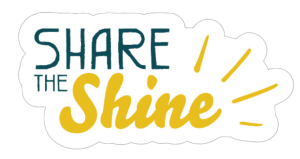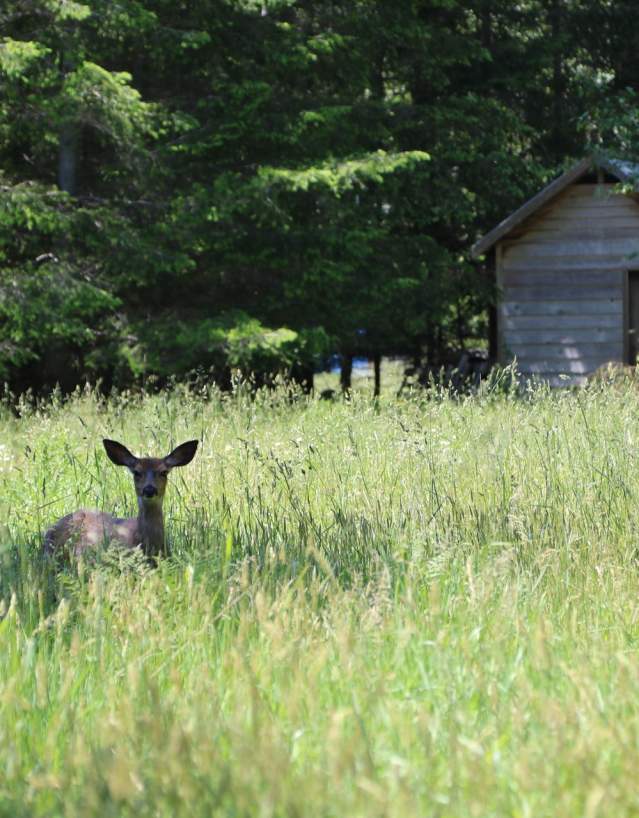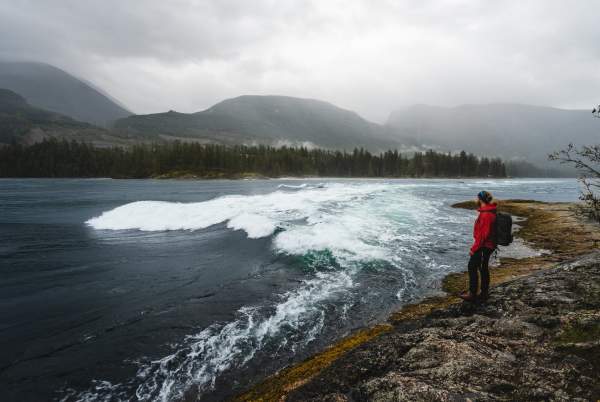Residents
Sunshine Coast Tourism is working hard to support the sustainable development of the tourism industry in the Sunshine Coast & qathet region in alignment with the values of our residents. The tourism industry on the Sunshine Coast has experienced a lot of change in the last few years, and we are listening and engaging with residents on an ongoing basis to make sure we are moving in the right direction. We've created an ongoing survey for residents to share feedback, plus we hosted a series of conversations with residents who live on the Sunshine Coast. The input from the survey and sessions is informing our future plans, actions and activities. In 2023, you'll find us out and about at community events where we hope to engage with residents, and we are always open to learning from and listening to the community.
What we’ve been doing
The small and dedicated Sunshine Coast Tourism team works to responsibly grow awareness of the Sunshine Coast—from Langdale to Lund—through inspiring and engaging marketing that brings responsible visitors to local businesses and communities when they need it. We also support travellers with a network of visitor centres and work with all levels of government to advocate for and support sustainable tourism and infrastructure projects that enhance the communities and the Sunshine Coast experience for all—including residents.
The mission of Sunshine Coast Tourism has long been to build a strong tourism economy on the Sunshine Coast consistent with the values of its residents. The core values of Sunshine Coast Tourism were created with residents in mind:
- A sense of curiosity – intellectually and emotionally.
- Respect for all – a desire for all to co-exist here.
- A love for where we work and play.
- Respect for the land and its history – ecologically conscious and strive toward sustainability.
The COVID-19 pandemic presented many challenges along the way, and we learned some valuable lessons. We have been reminded daily of what is truly important. The health, safety, and longevity of the ecosystem, our communities, families, and friends must always come first.
Where we’re going
As the resident population grows, so has tourism, and with more people means the need for more careful planning and management of tourism. With many complex factors at play that are contributing to an upswing in visitor growth, we want to continue a collective discussion about how we as residents would like to see tourism evolve in the years to come.
We understand that not everyone is familiar with how the tourism industry contributes positively to the local lifestyle and economy. This includes employment, economic diversification, cultural preservation, and environmental protection.
- Tourism contributes more than $200M annually in direct and indirect spending on the Sunshine Coast.
- Tourism is historically the largest employer of youth in BC – more than 30%. (Source: Destination BC)
- About 22% of restaurant revenues in BC come from travellers who help keep your favourite dining spots open, and probably more in some of our communities on the Coast. (Source: BC Statistics)
- Tourism increases awareness and appreciation of Indigenous culture and heritage. (Source: Indigneous Tourism BC)
- Things we enjoy would not be as viable without the tourism engine: museums, galleries, events, transportation, trails, marinas and more. (Source: Destination BC)
We are also aware that tourism can cause challenges for those who call a destination their home. This can include busier ferries, longer waits at restaurants, and harm to our ecosystems.
- We’ve heard concerns expressed about too many people coming in the summer and not enough in the rest of the year, too little investment in infrastructure, community traffic bottlenecks, affordable housing, water usage, garbage, and illegal fires.
- We've heard concerns about tourism impacting Indigenous Rights and Titles, such as hunting and fishing rights.
- We've heard concerns about specific locations on the Sunshine Coast being overly impacted.
Share the Shine
With miles of stunning beaches, chilled-out coastal communities, towering mountain peaks, and spectacular scenery at every turn, we want to ensure this place retains its natural splendour. The dedicated team at Sunshine Coast Tourism is committed to a vision of sustainable tourism that aligns with the deeply held values of locals while sharing our stories, favourite places, and coastal hospitality with those who dream of visiting. To succeed, we need the help of proactive residents like yourself to Share the Shine!

This summer, you’ll see the Sunshine Coast Tourism team at various community events like Powell River’s Blackberry Festival, Sechelt’s Show n’ Shine and other local events, handing out refreshing lemonade and fun swag. It’s the team’s way of saying thanks for Sharing the Shine with guests, and it’s an enjoyable opportunity for us to interact with and share what a healthy tourism industry brings to local communities.
At its core, Sharing the Shine is about understanding and empathy. Locals can be open-minded with visitors who look forward all year to coming here. Sunshine Coast Tourism works to educate visitors before they even arrive about the values locals are passionate about—respect for everyone and every living thing, including the land and waters.
Share the Shine
Click the "play" button to watch.
-
Sunshine Coast Tourism is a local non-profit society, governed by an 11-member volunteer Board of Directors and staffed by a small team based in multiple locations across the Sunshine Coast. We receive funding from both public and private sources in order to fulfill our mandate.
- Learn more about our Board of Directors >
- Learn more about our Staff >
- Read our Constitution and Bylaws >
- Learn more about our Funding >
-
- Please fill out this survey to provide your input.
- You can also send us your input at anytime at info@sunshinecoastcanada.com.
- Please add your email to our Resident Conversations email list to stay informed on future engagement sessions.
-
- Tourism can play an important role in generating economic benefits, improving the quality of life for residents and building better societies. Done well, tourism contributes to job creation, infrastructure development, cultural information/education exchange with both residents and visitors to the region, and more.
- Locally, tourism generates more than $200M in spending, provides more jobs than any other industry on the Sunshine Coast, and supports a significant portion of revenues for many small, locally owned businesses, from artists and retail shops to restaurants and tour operators.
- Tax revenues collected from short-term rental stays are helping fund affordable housing projects on the Sunshine Coast
For more, watch this great 3-minute video from the World Travel & Tourism Council: click here.
-
- Though there are many types of visitors who decide to visit this part of the province, Sunshine Coast Tourism strives to attract respectful visitors who desire to understand the area’s laid-back lifestyle in a sustainable way.
- Visiting friends and family, and those coming to the Coast for business also make up a significant part of visitors.
-
Visitors have an important responsibility in following local laws and restrictions. Sunshine Coast Tourism takes our role and sharing that information both before and during a visitor's trip very seriously, but residents have an important role to play too.
What Sunshine Coast Tourism is doing:
- Created the 'Sustainable Sunshine Coast' initiative, to raise awareness for visitors and tourism businesses about local sustainability practices, such as water conservation and active transportation
- Created the "Know Before You Go" webpage to ensure visitors have the latest information on local issues such as road closures, watering restrictions, campfire bans, provincial health orders, and other travel impacts
- Partnered on the "Don't Love it to Death" campaign, a provincial educational campaign on responsible behavior in natural areas; including reducing wildlife conflicts, dealing with garbage and human waste, being prepared for the outdoors, respect for people and environment
- Sharing information from the campaigns above through our social media channels, visitor information centres, and with local tourism businesses
What residents can do:
- Extend a warm welcome to visitors in our communities—or as we like to say, Share the Shine!
- Ensure your own guests, such as visiting family and friends, are aware of local laws and restrictions.
- Share your concerns via our resident survey or email.
-
Sunshine Coast Tourism works to encourage visitors travel in the fall, winter, and spring when businesses need more visitors to keep their doors open and staff employed. We call this “dispersion”—shifting tourism growth into months where businesses are less busy and experiences such as ferries and park trails are less in demand from residents. Sunshine Coast Tourism does not engage in paid advertising to promote the Coast during July and August.
-
Sunshine Coast Tourism is primarily funded through a 2% tax that visitors pay on their accommodations stays (like at hotels, motels, and vacation rentals) called the MRDT. Other funding sources include local governments, contract fees for the management of visitor centres, Destination BC co-op funding, and federal summer job grants.
- Read more about our funding and the MRDT >
-
Short Term Rental policies are within the jurisdiction of each local municipality/regional district. We believe that there is a need for balanced, fact-based decision-making that looks at both the positive contributions and the challenges that come with Short Term Rentals. We recognize the long history of vacation rental cottages as part of the tourism experience on the Sunshine Coast, and we also see the need for common-sense regulations that support the health and safety of our residents and guests. We respect the decisions made by each First Nation and local government.
-
The Executive Director of Sunshine Coast Tourism sits on the Northern Sunshine Coast and Southern Sunshine Coast Ferry Advisory Committees. That way, we hear about concerns with ferry service and participate in working to improve the ferry service for everyone travelling to and within the Sunshine Coast. Additionally, Sunshine Coast Tourism continues to provide direct feedback to BC Ferries' leadership and to the BC Ferry Commission.
Looking for some help or more information? Contact us today.


